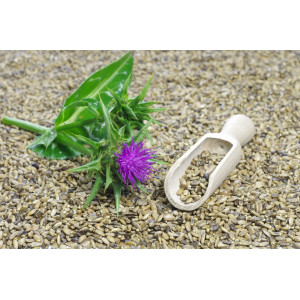In the realm of nutrition, natural seeds stand out as tiny powerhouses of health benefits. From omega-3 fatty acids to antioxidants, these seeds offer a wealth of nutrients that can boost your well-being. This guide will delve into the world of natural seeds for sale, exploring their benefits and how to incorporate them into your diet for optimal health. In today’s article, we will take a look at the topic: Sowing Health: Top Natural Seeds for Sale and Their Benefits.
Table of Contents
- Understanding Natural Seeds
- Exploring Top Natural Seeds
- Selecting and Using Natural Seeds
- FAQ
Understanding Natural Seeds
What are Natural Seeds?
Natural seeds refer to the small, nutrient-dense components of various plants and fruits. They are rich in healthy fats, protein, fiber, vitamins, and minerals. Seeds play a crucial role in plant reproduction and are often consumed for their nutritional value.
Benefits of Natural Seeds
- Nutrient-rich: Seeds are packed with essential nutrients, including omega-3 fatty acids, antioxidants, fiber, and protein.
- Heart health: Many seeds, such as chia and flaxseeds, contain heart-healthy fats that can help lower cholesterol levels and reduce the risk of heart disease.
- Digestive health: The fiber content in natural seeds promotes healthy digestion and can help prevent constipation and improve gut health.
- Weight management: Incorporating natural seeds into your diet can help you feel fuller for longer periods, aiding in weight management and portion control.
Exploring Top Natural Seeds
Chia Seeds
Chia seeds are tiny black or white seeds derived from the Salvia hispanica plant. Omega-3 fatty acids, fiber, protein, and antioxidants load them. Indeed, people recognize chia seeds for their ability to absorb liquid and form a gel-like consistency, making them a popular addition to smoothies, puddings, and baked goods.
Flaxseeds
Flaxseeds, also known as linseeds, are derived from the flax plant. They are an excellent source of omega-3 fatty acids, lignans, and fiber. Indeed flaxseeds can be consumed whole or ground and are commonly added to yogurt, oatmeal, salads, and baked goods for a nutty flavor and nutritional boost.
Sunflower Seeds
Sunflower seeds are the edible seeds of the sunflower plant. They are rich in vitamin E, healthy fats, protein, and minerals such as selenium and magnesium. Indeed sunflower seeds can be enjoyed roasted as a snack, sprinkled on salads, or used as a topping for baked goods.
Pumpkin Seeds
Pumpkin seeds, also known as pepitas, are the edible seeds of the pumpkin plant. They are a good source of protein, healthy fats, fiber, and antioxidants such as vitamin E and carotenoids. You can enjoy pumpkin seeds roasted as a snack, add them to trail mix, or use them as a topping for soups and salads.
Selecting and Using Natural Seeds
Choosing High-Quality Seeds
When purchasing natural seeds, consider the following factors:
- Organic: Opt for organic seeds to avoid exposure to pesticides and chemicals.
- Non-GMO: Choose non-genetically modified (non-GMO) seeds to ensure purity and sustainability.
- Freshness: Look for seeds that are fresh and fragrant, with no signs of rancidity or mold.
Incorporating Seeds into Your Diet
There are numerous ways to incorporate natural seeds into your diet:
- Smoothies: Add a spoonful of chia or flaxseeds to your smoothie for an extra nutritional boost.
- Salads: Sprinkle sunflower or pumpkin seeds on top of your salad for added crunch and nutrition.
- Baked goods: Use ground flaxseeds as an egg substitute in baking, or add pumpkin seeds to muffins and bread for texture and flavor.
FAQ:
1. Are natural seeds suitable for people with nut allergies?
In most cases, natural seeds are safe for individuals with nut allergies as they are botanically distinct from tree nuts. However, individuals with severe allergies should consult a healthcare professional before consuming seeds.
2. Can natural seeds help with weight loss?
Yes, incorporating seeds into your diet can aid in weight management due to their high fiber and protein content, which help you feel fuller for longer periods and promote satiety.
3. How should natural seeds be stored to maintain freshness?
To maintain freshness, store seeds in an airtight container in a cool, dry place away from direct sunlightand moisture. Refrigeration or freezing can also help prolong the shelf life of seeds, especially if they are ground or milled.
4. Can natural seeds be consumed raw?
Yes, many seeds can be consumed raw and are often enjoyed this way as a nutritious snack. However, some people may prefer to roast or toast seeds to enhance their flavor and texture.
5. Are there any precautions to take when consuming natural seeds?
While seeds are generally safe for consumption, it’s essential to consume them in moderation, especially if you have certain medical conditions or allergies. Additionally, be mindful of choking hazards, especially for young children, and always chew seeds thoroughly before swallowing.
6. Can natural seeds be used in cooking and baking?
Absolutely! Natural seeds are incredibly versatile and can be used in various culinary applications. You can add them to smoothies, salads, baked goods, cereal, yogurt, and more to enhance both flavor and nutrition. Adding them enhances the flavor and nutrition of smoothies, salads, baked goods, cereal, yogurt, and more.






